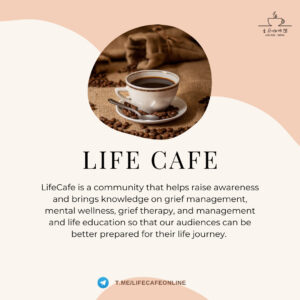
According to Singapore Statistics, Residents Aged 65 Years and Over in Resident Households Dashboard in 2020, stands at 622,901. of which 10.2%; (roughly 63,535) are living alone. Solo aging can imply various things to various people. A solo ager is typically an older adult who does not have immediate family to whom they can turn for assistance with issues like health care. Some people are solo by choice, and it is a conscious decision made.
As there are already many resources and blog posts discussing ACP, LPA, and how we can have conversations with our partners and children. we would like to discuss alternative solutions.
Preparing for the future is vital for most individuals. For soloists, making sense of your values and possibly your purpose in life is exactly what’s most crucial for solo singles. Hence documenting what matters to you is even more crucial to ensure that your wishes are truly honored.
In this Blogspot, we will share ideas for helping you discover what matters to you. How you can identify the right people who can ensure that your healthcare decisions are aligned with your goals and preferences.
- Consider what is important to you.
We can’t anticipate every scenario. However, we may discuss what is most crucial to our lives and health care. For their intentions to be understood and respected, solo adults should discuss their wishes for care during their final days.
It’s good to organize your thoughts as a first step to being ready to talk about what matters to you and your intentions for care at the end of life.
- What does a good day look like for you?
- Or who supports you during difficult times?
- Try finishing this sentence: What matters to me through the end of my life is…
Sharing with people you trust can be a big help if they could one day be placed in the position to communicate with your health care team one day. They may share with others what’s important to you, what you consider as a good day, and the types of treatment you would so want to receive. Working on the above three can help refine what you intend to let your trusted friends know about what truly matters to you.
- Record and share what matters to you
If you express your opinions about potential scenarios that may occur now, in the future, or as you approach death, you are more likely to have a say in how your health is handled.
- When there is a medical decision to be made, I would like to have a say or would I prefer to leave it to the doctors and health care team.
- If I am diagnosed with a serious illness that could shorten my life, I would prefer to not know or be in the know?
- Where do you prefer to be toward the end of life?
- If you were seriously ill or near the end of your life, how much medical treatment would you feel was right for you?
- What are the most important things for your friends, family, and health care team to understand through the end of life?
- What is the information you wish to (or not) share with certain trusted people?
- If you were incapacitated, would you want people to follow all your wishes or do what they think is the best at the moment?
- When it comes to sharing information about my health with others… Are you comfortable with it?
- When I die… would you like to be surrounded by friends and family or would you like to be alone?
To ensure that your decisions are honored, it is the best practice to record your talk. Sharing your ACP is crucial. Speak with anyone who can give you a voice in your care as you near death, including your medical team. Let everybody who might require a copy of your ACP have one. Also, give a copy to your health care proxy; we’ll discuss them next.
- Appoint a Health Proxy with Advance Care Plan (ACP)
Advance Care Planning (ACP) is the process of planning for future health and personal care. It includes discussing one’s personal beliefs and goals for care with their loved ones and healthcare providers.
Appointing someone you trust using an advance care plan (ACP) can work with you and help respect your wishes. If you do not have the capacity to speak for yourself, a donee can help you to make medical and health decisions on your behalf. Select a Donee that communicates with you and knows your wishes in life. You should prevent confusion throughout your life by informing your family members who your donee is or are.
Here are some people you can consider to be your proxy or named donee in your ACP plan. For more information regarding ACP Click here.
- A Friend or extended family member.
- Trusted Neighbour
- A Member of your religious group and community
- Volunteer groups or communities.
As you continue to contemplate and learn from what is important to you. know that, If life is about the journey and not the destination, then so is death. It is better to have those awkward and difficult conversations about aging, medical care, and end-of-life wishes and plans well ahead of time.
About Life Cafe:

Life Cafe is a community that helps raise awareness and brings knowledge on grief management, mental wellness, grief therapy, and management and life education so that our audiences can be better prepared for their life journey.
Live Life, Love Life:
Whether you are planning your own or your loved ones’ end-of-life plan, Nirvana Memorial Garden can help you achieve total peace of mind and long-term savings with a comprehensive suite of funeral and preplanning services. To learn more, visit us at nirvana.com.sg.
Disclaimer:
While the Information is considered to be true and correct at the date of publication, changes in circumstances after the time of publication may impact the accuracy of the Information. The Information may change without notice and Nirvana Memorial Garden is not in any way liable for the accuracy of any information printed and stored or in any way interpreted and used by a user.
